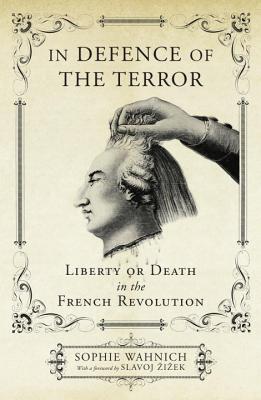What do you think?
Rate this book


144 pages, Hardcover
First published January 1, 2003
Establishing the Terror had the aim of preventing emotion from giving rise to dissolution or massacre, symbolising what had not been done in September 1792 and thus reintroducing a regulatory function for the Assembly. For Danton, the members of the Convention had to be ‘the worthy regulators of national energy’.
By inventing the neologism ‘terrorist’, the Thermidorians not only anthropologised a violence that was also seen as popular, but they actively obscured what had given this terror a situational legitimacy: a juridico-political process of collective responsibility. In fact, the [constitutionally enshrined] duty of insurrection made each person a watchman who had to either rise up at risk of his life, or take responsibility for the decisions of the national Convention.
Active forgetting is what is effected after the time of foundation, when the notion of the irreconcilable enemy becomes obsolete and intolerable. From this point on, the ‘terrorists’ were the Other of the republicans. The most fervent of these, such as Victor Hugo - little suspected of counter-revolutionary ideology - constantly asserted that, even faced with such as crime as that of 2nd December 1851 [Louis-Napoléon’s coup and re-establishment of the French Empire], they would never call for revolutionary terror. The acts of those defeated by history became infamous for those of their heirs who might be of a mind to repeat them. Even if they were understood - and Hugo’s ‘1793’ bears witness to this - no situation could lead to their repetition. Even those responsible for defending revolutionary memory knew that the foundational time was not replayable, and that such acts of terror belonged to a different age.
Your revolutionary tribunal has despatched 300 scoundrels in the last year; did not the Spanish Inquisition do more? And for what, in the name of God! And did the English courts execute no one this year? ...And no-one mentions the German prisons in which the people are buried. [St Just, 26th February 1794]
The deputies of the primary assemblies have come to exercise among us the initiative of terror against domestic enemies. Let us respond to their wishes. No amnesty for any traitor. The just man does not show mercy to the evil. Let us signal popular vengeance on the conspirators within by the sword of the law. [Danton, 12th August 1793]
Weep for the guilty victims assigned to the vengeance of the laws, who fell under the sword of popular justice; but let your grief have an end, as with all human things. Keep some tears for more touching calamities. Weep for a hundred thousand citizens slain by tyranny, weep for our citizens dying under the fires of their roofs, and the sons of citizens murdered in the cradles or in the arms of their mothers. Do you not also have brothers, children, and wives to avenge? The family of French legislators is the patrie; it is the entire human race apart from tyrants and their accomplices. Weep then for humanity dead under their hateful yoke. [Robespierre, 28th September 1792]